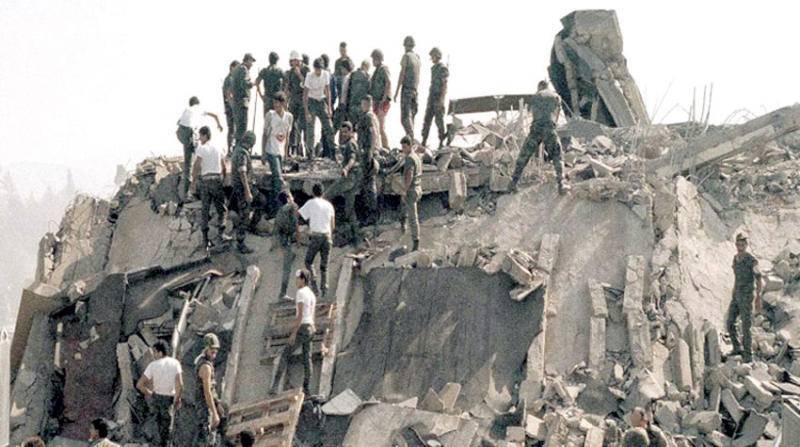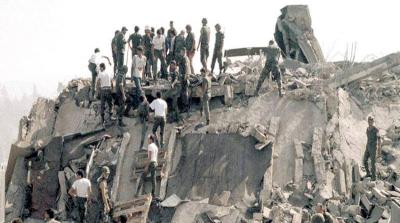The newspaper "Asharq Al-Awsat" reports that Lebanon has received new correspondence from the French judiciary, which contains a legal request but also carries a sensitive and delicate political message. The request seeks to interrogate two individuals, suspected of being involved in the bombing of the French paratroopers' headquarters near Beirut International Airport, which occurred on October 23, 1983, and resulted in the deaths of 54 soldiers from that unit.
This communication from French authorities falls under the framework of judicial cooperation between the two countries and requests assistance in the investigation regarding this suicide bombing. It specifically asks for the questioning of two suspects, Yusuf Khalil and Sana'a Khalil, in relation to the aforementioned bombing. However, the Lebanese side, taken aback by this request and its timing, is hesitant to respond, particularly since the crime occurred 40 years ago and is considered expired under statute limitations. An informed source told "Asharq Al-Awsat" that the request has "not yet been registered in the records of the Public Prosecution," and it has not even been translated into Arabic while awaiting a decision from the Prosecutor General, Judge Ghassan Owidat.
The source does not separate this request from the "French onslaught on Lebanese judicial files," starting with French involvement in financial investigations, proceeding to the case of the Beirut port explosion, and including investigations targeting former Nissan-Renault CEO Carlos Ghosn and Lebanese businessman Ziad Takieddine, among others. France has sent judges to Lebanon to undertake investigations regarding these matters, highlighting that the French request "needs clarification, especially since the individuals involved are entirely unknown and it is not clear if they are Lebanese or hold another nationality."
The bombing of the French paratroopers' headquarters occurred shortly after a suicide bombing executed by a truck bomb at the nearby U.S. Marines' compound, killing 241 American soldiers. Both attacks were claimed by a group calling itself "Islamic Jihad Movement," which declared that the attacks aimed to "drive out the multinational forces." Although the Lebanese judiciary issued a ruling in the late 1990s declaring the crime expired due to the passage of time—more than 15 years since its occurrence—the Americans protested this ruling, arguing it was influenced by Syrian dominance over Lebanese authority, including the judiciary.
While sources within the justice palace expect the judiciary to ultimately shelve this request due to its age, Paul Marquess, head of the "Justicia" rights organization, stated that "the crime of bombing the French camp has indeed expired under Lebanese law, but perhaps the French judiciary has taken measures to prevent this expiration." He noted for "Asharq Al-Awsat" that "in the absence of a judicial agreement between the two countries, Lebanon is not legally obliged to comply with this request, but politically, it may feel compelled to cooperate or provide information to avoid potential sanctions against Lebanon related to this case."
The fate of the French memorandum might resemble the decision made regarding the bombing of the Marines' headquarters, as Lebanon may struggle to reopen civil war files that could start with this case and potentially extend to the era of hostage-taking of foreign nationals and ambassadors, placing the country under new judicial oversight. The same source links this development to "recent indicators" with the participation of France and other European countries in financial matters and their direct entry into the investigation of the Beirut port explosion, hinting at European desires to participate in investigations related to the targeting of (UNIFIL) patrols operating in southern Lebanon, including the recent shooting incident involving an Irish patrol in the town of Al-Aaqibiya, which resulted in the death of one of its soldiers.




